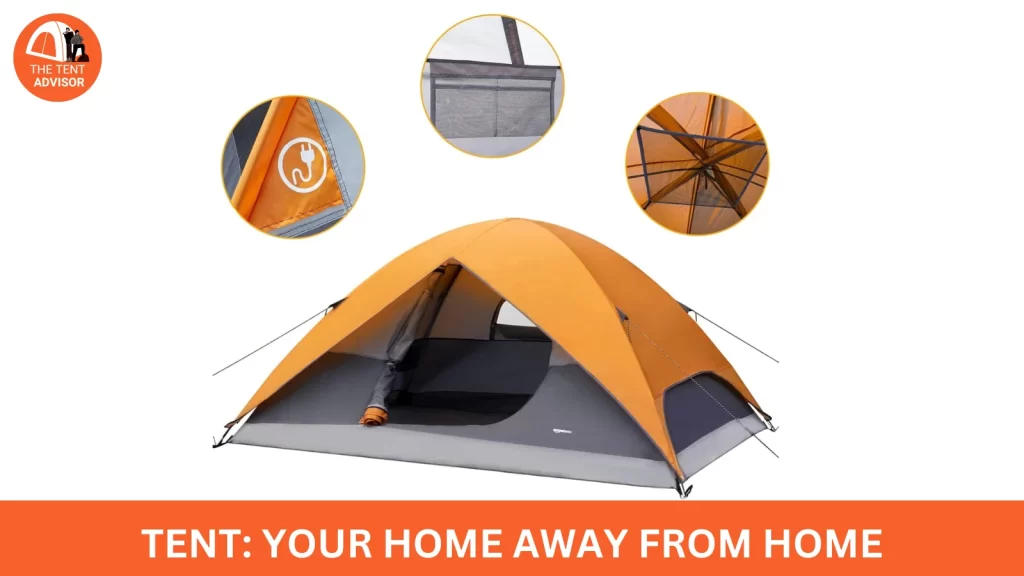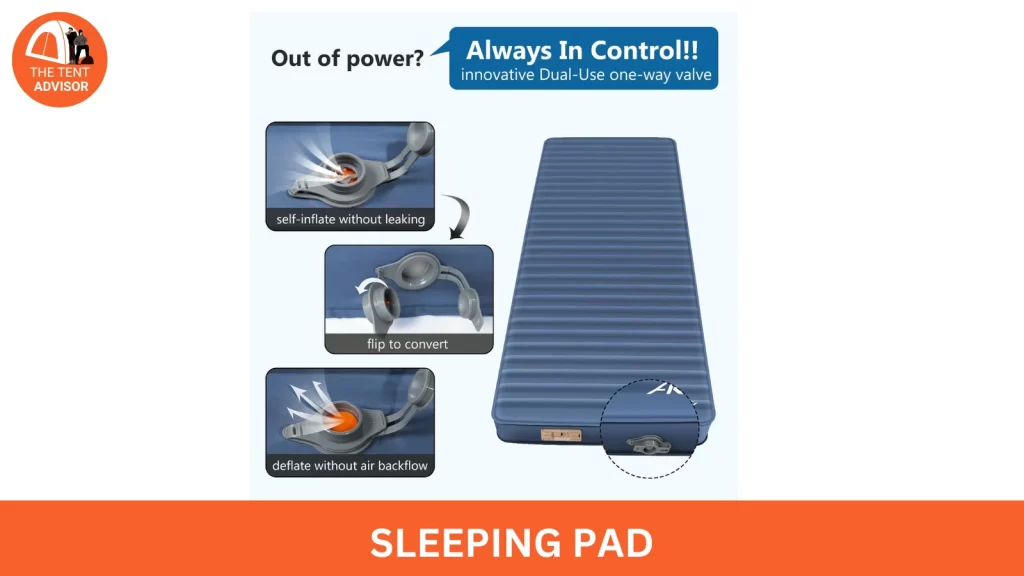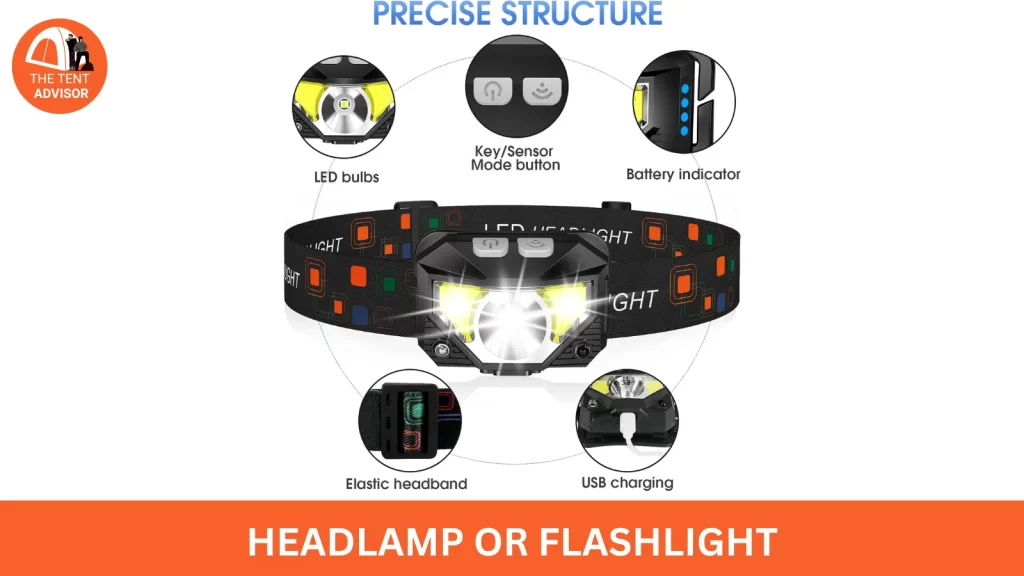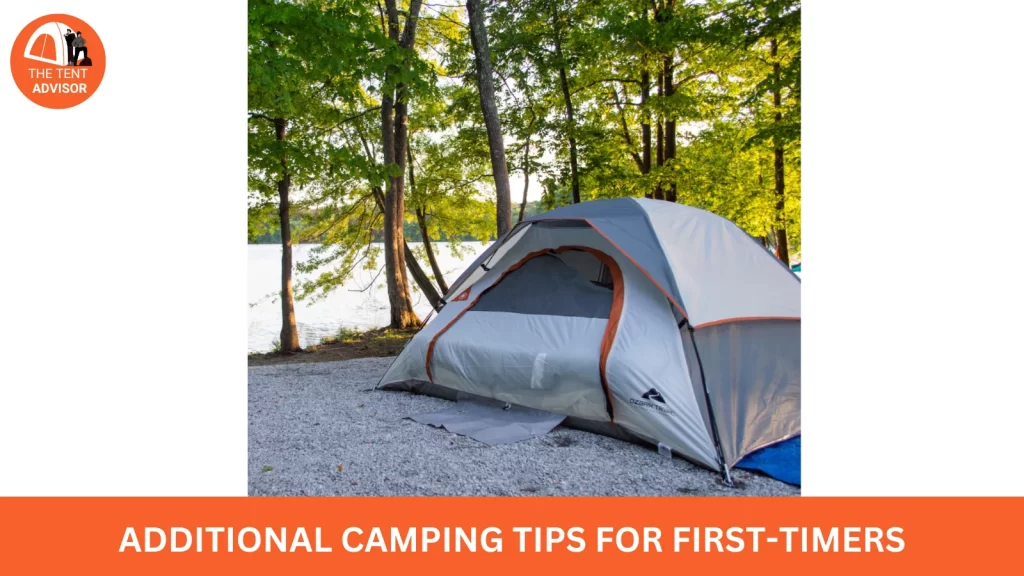Camping is one of the best getaways to disconnect from the busy world and reconnect with nature. Whether it be a weekend trip or a longer one, nothing feels better than when the camping gear is just right for ensuring your comfort, safety, and enjoyment. For a first-timer, knowing which gear to carry could get quite overwhelming. There are options galore, and you want to be sure you don’t pack too much or leave behind something essential.
In this article, we’ll examine the basic camping essentials every beginner should consider bringing along. From sleeping bags to cooking tools, we’ve encompassed all essentials in a very simple way. This camping gear checklist will get you ready for your first camping trip another day!
Why the Right Camping Gear Is Important
Although camping means almost anything, good camping gear goes much beyond what you would simply consider the “basics.” Good gear allows you to stay safe, warm, and comfortable out there, especially since you may be a beginner. Nothing can hamper an outing more than finding yourself alone in inhospitable terrain without the right equipment, just in case things do not go according to plan.
- Be comfortable regardless of the weather.
- Sleep well in the middle of the forest.
- Cook and prepare food while outdoors with ease.
- Be prepared for unexpected situations, such as bad weather or minor accidents.
Let’s review the basic camping gear for the beginner that will really set you on the right path for a very successful first camp!
Essential Camping Gear for First-Time Campers
A first-time camper does not need to bring everything found in a camping store. Just narrow down the basics, as the simpler they keep it, the better. Here are some of the important gear for first-time campers:
1. Tent: Your Home Away from Home

The tent is your shelter in the wild; hence, making an appropriate choice is important. For first-time campers, look for an easy-to-set-up, waterproof four-season or three-season tent that is spacious enough for you and your camping buddies.
- Size: Tents usually come in sizes for 1-2 persons, 3-4 persons, or family camping. Pick a tent that fits everyone and accommodates gear within some extra space. If you are camping alone, a smaller, lighter tent would be the best choice to carry around
- Weather Protection: Choose a tent with a waterproof rainfly so you can stay dry in the event of a rainstorm. If you are camping in places where it gets a bit colder, make sure your tent provides insulation to keep you warm.
- Ventilation: Look for tents that offer mesh windows for ventilation, allowing airflow and a cooling breeze on warm nights.
2. Sleeping Bag: Rest Well for the Next Day’s Adventure
Nothing is more essential in getting a good night’s sleep than a proper sleeping bag. When choosing a good sleeping bag, consider:
- Temperature Rating: Sleeping bags are rated concerning different temperature ranges. Make sure that your bag is appropriate for the climate where you will be camping. When in doubt, go for a colder-rated bag.
- Material: sleeping bags are either synthetic or down. Synthetic ones are considerably less expensive and are better when wet, while down bags are lighter, warmer, and much more costly.
- Size and Shape: Sleeping bags are available in mummy shapes for warmth or rectangular shapes for more space, depending on what is comfortable for you.
3. Sleeping Pad: A Cushion for the Ground

The floor cushions and sleep pads are for camping comfort. A good sleeping pad takes you away from ground insulation and other situations, all with cushioning to help keep your body in a state that gently nudges you toward a good night’s sleep.
- Foam Pads: Light and sturdy, but probably not as comfortable as inflatable mattresses
- Air pads provide more comfort and are inflatable, but they can be heavy and pricey.
Ensure that the sleeping pad that you choose fits the tent and is good enough to provide restful sleep.
4. Camping Stove: Cook Delicious Meals Outdoors
A camping stove is an essential piece of equipment for food preparation when one goes camping. It is more convenient than using a campfire, especially where fires are not allowed.
- Single Burner: A small-statured stove that is lightweight and carries about.
- Multi-Burner Stove: If you are on a camping trip with your friends or even family, using a stove with two or more burners makes cooking even easier to prepare more food at once.
Just remember to add fuel to your stove; propane is the most common fuel used in camping stoves.
5. Cookware: Preparing Your Meals
You shall have cookware that is easy to pack and clean when you go camping. Here are some of the cooking gear and equipment that you will need:
- Pots and Pans: Lightweight yet durable will do.
- Utensils: You have not left the spoon, spatula, and knife for cooking.
- Eating Utensils: Include plates, bowls, forks, and knives, which are easy to clean.
- Water Bottle: A durable, reusable water bottle is essential for staying hydrated.
Choose Cookware Made of brass steel or aluminum: They are durable and easy to wash.
6. Headlamp or Flashlight: Light Your Way

A headlamp or flashlight is a must-have for walking around the camp at night. A headlamp keeps your hands free and provides bright illumination of the area directly in front of you. Always pack some extra batteries.
- Headlamp: Perfect for hands-free tasks like cooking or setting up your tent in the dark.
- Flashlight: Great for lighting up a larger area.
Choose one with a long battery life and enough brightness to guide you through the night.
7. Camping Chair: Comfort by the Campfire
A camping chair is for seating around the fire and can also be used for having meals and talking to friends. These camping chairs should be lightweight and foldable in nature for easy transportation and keeping in your car.
- Portable: Choose a chair that folds easily and takes up very little space in your car.
- Durable: A strong fabric and a robust set of legs in a chair will last longer.
8. First-Aid Kit: Be Prepared for Emergencies
A basic first aid kit is an important item that you should always have when going camping. Pack things like bandages, antiseptic wipes, painkillers, tweezers, and any personal medications you might need.
- Lightweight Size: Select a first aid kit that is small and convenient to take along with the rest of your gear.
- Going for Vital Components: Then, also ensure that the items included are essential for treating minor cuts, blisters, or sprains.
9. Multi-Tool or Knife: Versatility at Its Best
Useful for a host of activities, such as cutting rope or opening cans, or even as a makeshift cooking knife, the multifunctional camping tools have diverse functions. A multi-tool is an introduction to many of the tools available in one, such as pliers, screwdrivers, and very small knives.
- Quality: Items are made from stainless steel, which is a durable metal.
- Portability: Make sure it does not add weight to the luggage.
10. Weather-Appropriate Clothing
Put on some layers to keep warm; the weather can change so quickly. A base layer helps to absorb moisture, an insulation layer keeps the body warm, and an outer cover protects it from wind and rain.
- Rain Gear: Carry a completely waterproof jacket and pants for a rainy day.
- Warm Clothes: Even in summer months, the temperature can drop at night, so carry a warm layer.
- Footwear: Take tough, off-the-ground hiking boots that will give you good ankle support so that you can walk on uneven terrain.
Additional Camping Tips for First-Timers

- Know Your Campsite Rules: Before you embark on your outdoor holiday, take note of campsite rules, particularly fire restrictions and wildlife precautions.
- Leave No Trace: Leave No trace principles encourage mindful presence in the environment. Always pack out all trash and minimize impacts on nature.
- Plan for Safety: In emergencies, inform someone of your camping plans and return dates. Always carry maps or GPS location devices in case you get lost.
- Pack Light, but Be Prepared: There’s a fine line between packing light and remembering the necessities. If it isn’t clear whether you will use it or not, it is better to have it when required than to be without it when needed.
By following this checklist and tips, you’ll be fully prepared and excited to pack for your first trip. Happy camping!.
Final Words:
Camping is truly an amazing experience by which one can get in touch with nature, escape from hectic day-to-day life, and share memorable experiences. Camping tools in good conditions prepare very nicely for a comfortable and wonderful experience in the wilderness. Take along your tent, sleeping bag, camping stove, first aid kit, and all other essentials. Safety, comfort, and well-being should always come first in your mind. Now that the basics are taken care of, let’s head outdoors and go camping!
FAQS
1. What are the must-have items for first-time campers?
A tent, sleeping bag, stove, cookware, headlamp, first-aid kit, and appropriate clothing for the weather are some of the essentials that should be included in packing for camping. They ensure comfort and safety during the camping trip.
2. How do I choose the right tent for camping?
Choose a tent according to the number of people sleeping inside, the weather, and for what purposes you would be using it. Make sure also to check that it is waterproof and properly ventilated for comfort during camping.
3. What should I pack for food on a camping trip?
Pack foods that will not spoil, such as canned meals, trail mixes, and granola bars. Also, bring freeze-dried meals packed for easy cooking or ready-to-eat meals.
4. How can I stay safe in the wilderness while camping?
Make sure to carry a map or GPS device, inform someone about your trip, and pack a first-aid kit. Follow the campsite’s rules, and be aware of your surroundings at all times.
5. Do I need a sleeping pad for camping?
Yes, sleeping pads provide insulation and comfort because they cushion one from cold ground and give a better night’s sleep camping.
